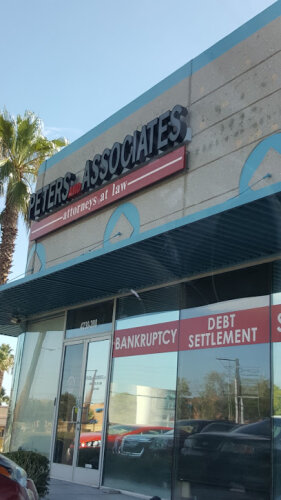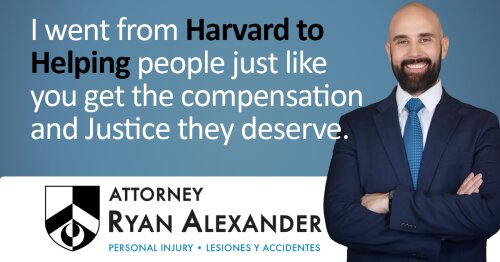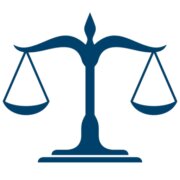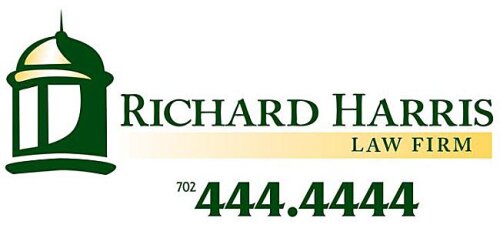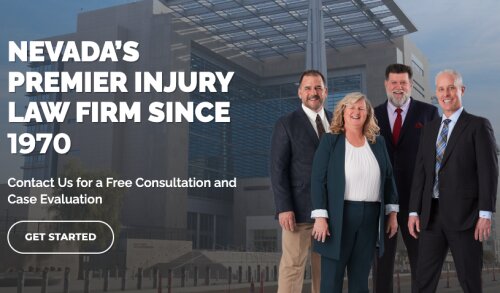Best Brain Injury Lawyers in Las Vegas
Share your needs with us, get contacted by law firms.
Free. Takes 2 min.
List of the best lawyers in Las Vegas, United States
About Brain Injury Law in Las Vegas, United States
Brain injury law covers the legal rights and remedies available to people who sustain traumatic or acquired brain injuries. In Las Vegas, as elsewhere in the United States, these claims typically arise from events such as motor vehicle collisions, slip-and-fall incidents, sports injuries, assaults, workplace accidents, medical negligence, and defective products. Brain injuries can range from mild concussions to severe, life-altering traumatic brain injuries. Legal claims focus on proving who was at fault, establishing the link between the incident and the injury, and calculating damages for medical care, lost income, and long-term needs.
Brain injury cases are often complex because they require medical evidence, expert testimony, and careful documentation of both immediate and delayed symptoms. Local courts in Clark County handle many of these claims, and Nevada law sets procedural rules that affect how and when you must act. Because brain injuries can change over time and often involve expensive long-term care, early legal advice can be important to preserve evidence and protect your rights.
Why You May Need a Lawyer
A lawyer can help in many situations involving brain injury. Key reasons to consult counsel include:
- Determining liability. Brain injuries often result from events involving multiple potential defendants. A lawyer investigates the facts, collects evidence, and identifies responsible parties.
- Preserving evidence and securing medical records. Important evidence can disappear quickly. Attorneys know what evidence to secure and how to obtain complete medical records and incident reports.
- Handling interactions with insurers. Insurance companies representing at-fault parties will often try to minimize payouts. A lawyer protects your interests during negotiations and settlement discussions.
- Proving causation and damages. Brain injury claims typically require medical expert testimony to show the extent of injury, future care needs, and how the injury affects employment and daily life. An attorney coordinates with medical and life-care planners.
- Navigating procedures and deadlines. Statutes of limitations, pre-suit notice requirements for government defendants, and other procedural rules can be strict. A lawyer ensures claims are filed correctly and on time.
- Managing complex claims. Severe brain injuries often produce long-term disability, rehabilitation needs, and financial planning questions such as trust creation, guardianship, or Social Security and disability benefits. Attorneys can coordinate a holistic plan.
Local Laws Overview
Several aspects of Nevada law are particularly relevant to brain injury claims in Las Vegas:
- Statute of limitations. For most personal injury claims in Nevada, the statute of limitations is relatively short. If you delay, you risk losing the right to bring a claim. Different rules can apply to claims against government entities and to medical malpractice actions, so prompt consultation is important.
- Comparative fault. Nevada applies a comparative fault principle that reduces a plaintiff's recovery by the percentage of fault attributed to them. If a plaintiff’s percentage of fault reaches a level that bars recovery under state law, they may not recover damages. The allocation of fault can be critical in settlement and trial strategy.
- Government claims. If the injury involves a government agency, special notice and filing requirements typically apply. These requirements are stricter than those for private defendants and often include short deadlines and rigid forms or timing.
- Workers compensation versus third-party claims. If a brain injury arises in the workplace, workers compensation benefits may be available for medical treatment and partial wage replacement. However, workers compensation can be the exclusive remedy against an employer in many situations. A separate third-party claim may be possible against a negligent non-employer.
- Medical malpractice and specialized rules. Brain injuries caused by medical errors may implicate medical malpractice rules, which can include requirements for expert affidavits, different statutes of limitations, and complex damage issues. These cases often require specialized medical and legal expertise.
- Damages and remedies. Claimants can seek economic damages such as past and future medical expenses, lost wages, and lost earning capacity; non-economic damages such as pain and suffering and loss of enjoyment of life; and in some cases punitive damages where the defendant’s conduct was especially reckless or malicious. How damages are calculated and what may be recoverable depends on the facts of the case and applicable Nevada law.
Frequently Asked Questions
What counts as a brain injury under the law?
Legally, a brain injury includes any injury to the brain that results from trauma, lack of oxygen, infection, or other causes. This may include concussions, diffuse axonal injury, contusions, hypoxic injuries, and acquired brain injuries from medical events. The legal focus is on the functional impact of the injury - cognitive impairment, memory loss, emotional changes, balance problems, and reduced capacity for work or daily activities.
How long do I have to file a brain injury lawsuit in Las Vegas?
Time limits vary by claim type. For most personal injury claims, Nevada imposes a short statutory deadline. Claims against government entities, medical malpractice suits, and other special categories can have different and often shorter timelines. Because deadlines can be unforgiving, consult an attorney promptly to determine the exact timing that applies to your case.
Do I have to pay legal fees upfront?
Many personal injury attorneys handle brain injury cases on a contingency-fee basis, meaning they receive a percentage of any recovery and you do not pay attorney fees unless there is a settlement or verdict. You may still be responsible for certain case expenses, but these costs are often advanced by the attorney and reimbursed from the recovery. Discuss fee arrangements and cost responsibilities in the initial consultation.
What evidence is most important in a brain injury case?
Critical evidence includes medical records, emergency and hospital reports, imaging studies, neurologist and rehabilitation assessments, witness statements, photos of the scene, surveillance video if available, police reports, and documentation of lost income. Expert testimony from medical professionals and vocational or life-care planners is often necessary to explain the injury and future needs.
Can symptoms that appear later still support a claim?
Yes. Brain injuries sometimes show delayed or progressive symptoms. Legal claims can rely on later-discovered symptoms so long as they can be connected to the original incident and fall within applicable statutes of limitation. It is important to document the onset and progression of symptoms with medical visits and records.
What if I was partly at fault for the accident?
Nevada applies comparative-fault principles that reduce recovery by the percentage of your fault. If your share of fault reaches the threshold set by law that bars recovery, you may not be able to recover damages. An attorney can help present evidence to minimize your percentage of fault and maximize potential recovery.
Will the case go to trial?
Many brain injury cases resolve through settlement, but some proceed to trial if parties cannot agree on a fair resolution. Trials can be lengthy and require expert testimony. A lawyer will evaluate the strengths and weaknesses of your claim and advise whether settlement or trial is appropriate based on liability, damages, and insurance exposure.
How is the value of a brain injury case determined?
Case value depends on the severity of the injury, medical bills, lost earnings, future medical and care needs, the degree of permanent impairment, pain and suffering, and the strength of liability evidence. Life-care plans, vocational evaluations, and economic projections often factor into estimating future costs. There is no fixed formula, and comparable settlements or verdicts can vary widely.
Can I get compensation for long-term care and assistive needs?
Yes. A successful claim can include compensation for past and future medical care, rehabilitation, assistive devices, home modification, attendant care, and other support services. Proving future needs typically requires expert testimony from medical and life-care planning professionals.
How do I pick the right brain injury lawyer in Las Vegas?
Look for experience handling brain injury and catastrophic-injury claims, a track record of results, good communication, and the availability of appropriate experts. Ask about contingency-fee arrangements, who will handle your file, and how they will keep you informed. Initial consultations are often free and let you compare counsel before deciding.
Additional Resources
If you or a loved one has experienced a brain injury, consider contacting these types of organizations and resources for information and support:
- Brain Injury Alliance of Nevada - statewide support, education, and referrals for survivors and families.
- Brain Injury Association of America - national resources on brain injury facts, treatment, and advocacy.
- Nevada Department of Health and Human Services and the Nevada Division of Public and Behavioral Health - state health resources, rehabilitation programs, and data.
- Nevada Bar Association - for attorney referral services and information about legal representation.
- Social Security Administration - information on Social Security Disability Insurance and Supplemental Security Income for those unable to work.
- Local hospitals and rehabilitation centers in Las Vegas - for medical and rehabilitative care, case managers, and discharge planning.
- Court self-help centers and legal aid organizations - for people with limited resources who need basic legal guidance or referrals.
Next Steps
If you suspect a brain injury or if someone close to you has sustained one, seek immediate medical attention. Timely medical care is essential for health and for documenting the injury for any legal claim.
Preserve evidence as best you can. Keep records of all treatment, appointments, prescriptions, work absences, and out-of-pocket expenses. Take notes about symptoms and how the injury affects daily life.
Consult a lawyer experienced with brain injury and personal injury claims as soon as possible. An attorney can evaluate your situation, explain possible claims, outline deadlines, advise on interactions with insurers, and coordinate experts to evaluate long-term needs.
If the incident involved a workplace injury, report it to your employer and consider both workers compensation and potential third-party claims. If the injury involved a public agency, contact an attorney quickly to learn about any special notice or filing requirements.
During the legal process, prioritize rehabilitation and follow medical advice. Consistent treatment improves recovery prospects and strengthens your legal case. Keep in close contact with your attorney, respond to requests for information, and follow their guidance on settlement offers and litigation strategy.
Acting promptly and working with knowledgeable medical and legal professionals improves the chances of obtaining the resources needed for recovery and long-term care.
Lawzana helps you find the best lawyers and law firms in Las Vegas through a curated and pre-screened list of qualified legal professionals. Our platform offers rankings and detailed profiles of attorneys and law firms, allowing you to compare based on practice areas, including Brain Injury, experience, and client feedback.
Each profile includes a description of the firm's areas of practice, client reviews, team members and partners, year of establishment, spoken languages, office locations, contact information, social media presence, and any published articles or resources. Most firms on our platform speak English and are experienced in both local and international legal matters.
Get a quote from top-rated law firms in Las Vegas, United States — quickly, securely, and without unnecessary hassle.
Disclaimer:
The information provided on this page is for general informational purposes only and does not constitute legal advice. While we strive to ensure the accuracy and relevance of the content, legal information may change over time, and interpretations of the law can vary. You should always consult with a qualified legal professional for advice specific to your situation.
We disclaim all liability for actions taken or not taken based on the content of this page. If you believe any information is incorrect or outdated, please contact us, and we will review and update it where appropriate.



